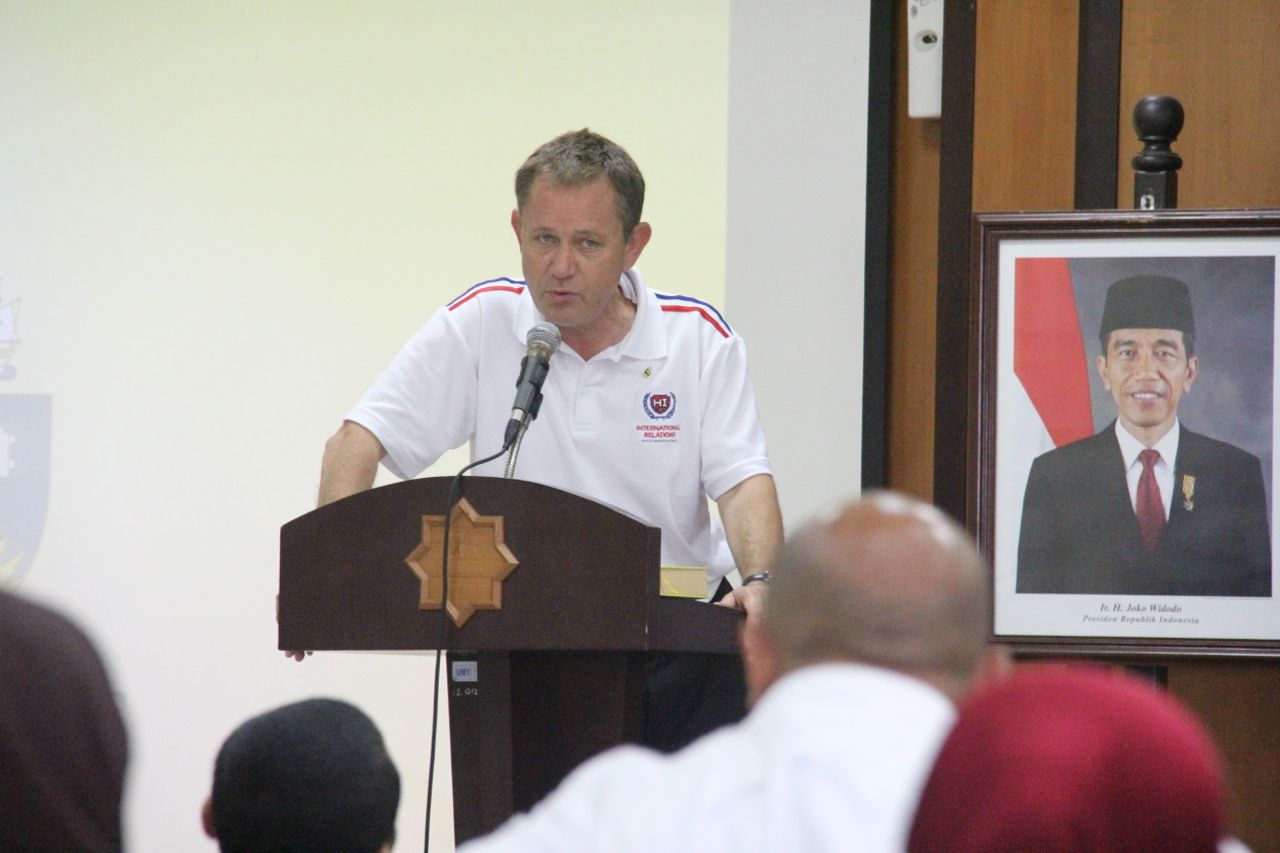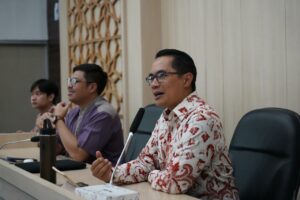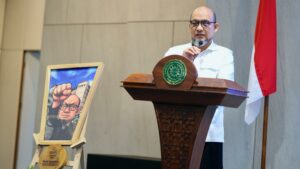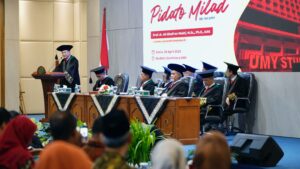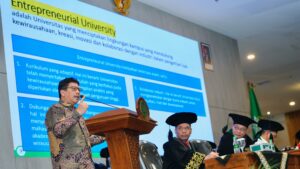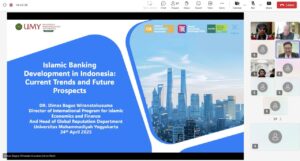According to Prof. Martin Griffiths from Flinders University, Australia, People’s Republic of China cannot equal modernism of the United States in all aspects including economic aspects. For instance, Gross Domestic Product (GDP) of the People’s Republic of China is higher than that of the United States, but Income Per Capita of the United States is greater than that of People’s Republic of China.
The aforementioned statement was uttered by Prof. Martin as one of the keynote speakers of International Conference on Social Politics (ICSP) 2016. The conference was organized by Faculty of Social and Political Sciences of Universitas Muhammadiyah Yogyakarta (UMY) collaborating with Asia Pacific Society for Public Affairs (APSPA) on Tuesday (26/1) at A.R. Fachruddin A, Floor 5, UMY. The other keynote speakers were Dr. Muhammad Zaki bin Ahmad from Univeristi Utara, and Prof. Tulus Warsito from UMY.
Prof. Martin stated that economic development of People’s Republic of China has encouraged urbanization, accounted 60%, for two recent decades. The urbanization caused three primary issues of People’s Republic of China. “First, it is dealing with an economic issue. Can the country maintain the economic growth? In fact, Chinese products are always sold inexpensively in markets. Does the commerce not lose the country? Second, it is regarding regime of property rights. When Chinese performs urbanization, the issue of property right between citizens and government will emerge, and it will trigger the issue of development policy,” he argued.
The third issue was how People’s Republic of China can stand itself. “By the development of People’s Republic of China turns into a superpower country, a question comes up, whether People’s Republic of China become a peaceful or non-peaceful superpower country,” he declared.
Furthermore, the second keynote speakers Dr. Muhammad Zaki bin Ahmad discusses United Nation Conference on the Law of the Sea (UNCLOS) III and how the policymaking process was. “UCLOS was a convention from 1968 to 1982 using consensus system instead of voting,” Zaki explained. He inserted that UNCLOS III can be analyzed through International Relations theories and perspective.
The other keynote speaker Prof. Tulus Warsito presented challenges of Social Political Sciences in changing society and sciences. In the society change, public nowadays is open, borderless, globalized, fast, simultaneous, new, and unique. While, in the science change, he contended that a theory cannot always remain. “For one reason, a theory is changeable,” he conveyed.
Additionally, the conference is conducted on Tuesday (26/1) to Thursday (28/1) and is joined by 200 participants encompassing foreigners, undergraduate and graduate students, and researchers. The conference was a contribution of FISIPOL of UMY to confront global and social changes.
